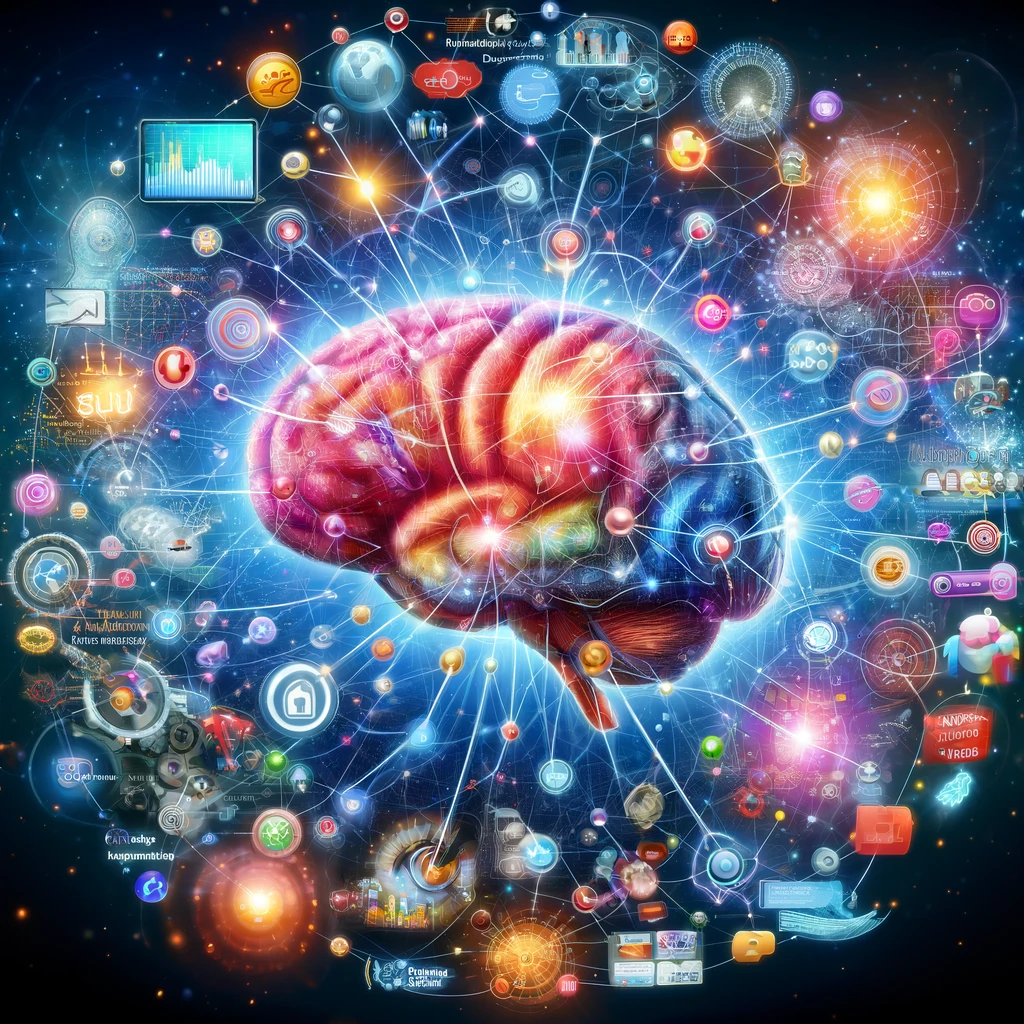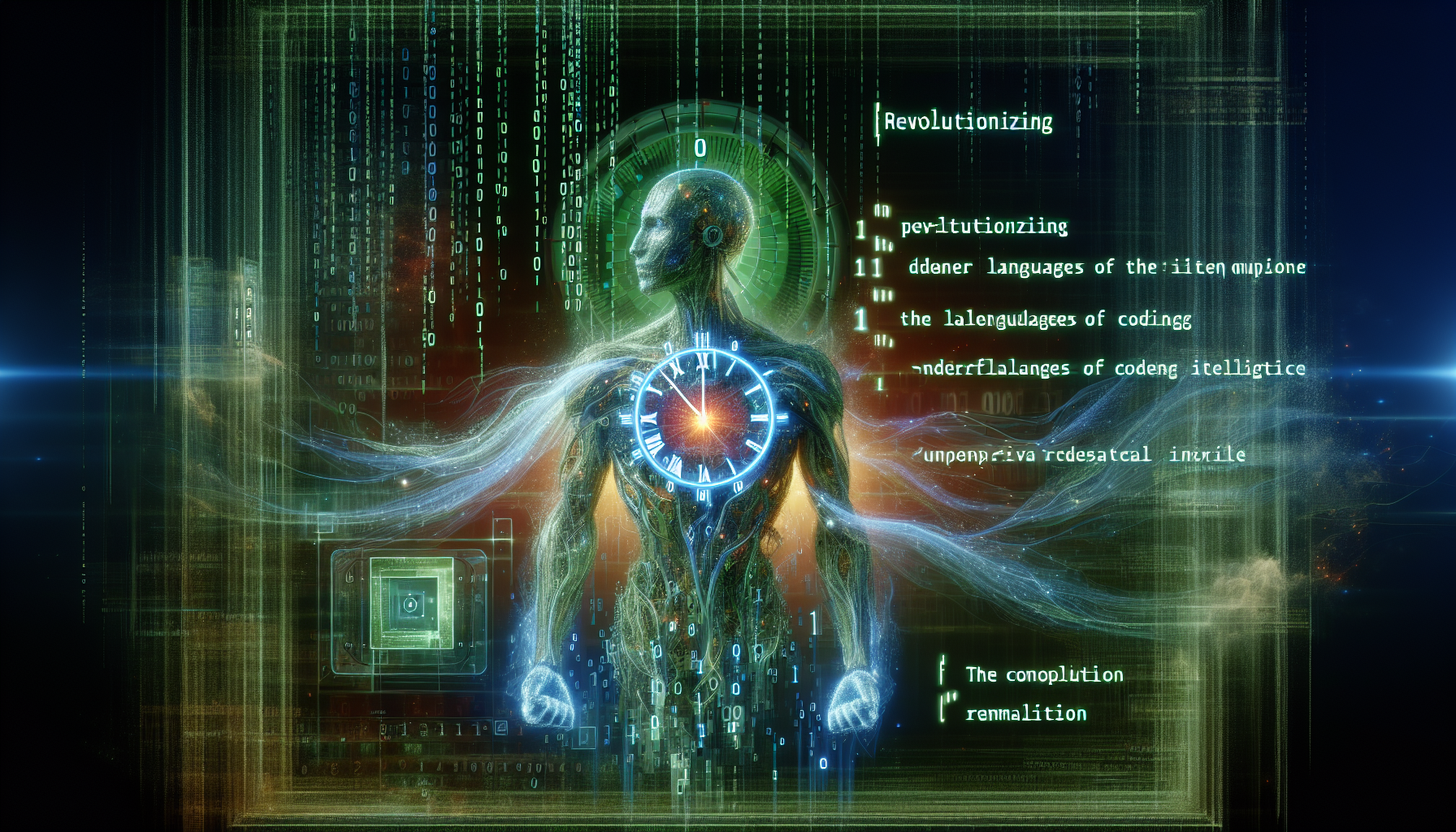In today’s world, technology is advancing at a faster rate than ever before. As we move ahead, it’s crucial to keep the ethical implications of our progress in mind. To ensure a better future, we must prioritize the responsible development and use of AI systems, considering moral integrity as the cornerstone.
Join me as we explore the significance of AI ethics, unraveling the potential ethical challenges that may arise. Together, we will contemplate the strategies that we can leverage to navigate the path towards a better tomorrow.
Key Takeaways
- AI ethics plays a critical role in the responsible development and use of AI technology.
- Prioritizing moral integrity is crucial to ensure a better future.
- Exploring the ethical implications of Artificial Intelligence is important to maintain a balance between innovation and responsibility.
- To create a responsible future with AI technology, we must stay proactive and anticipate potential ethical challenges that may arise.
- Implementing Ethical Governance and Regulations for AI is vital to maintain the ethical balance.
Understanding Artificial Intelligence (AI)
Have you ever wondered about the inner workings of AI technology? As we dive deeper into the ethical considerations of artificial intelligence, it’s crucial to establish a foundational understanding of what AI entails. Simply put, artificial intelligence is the development of machines that can perform tasks requiring intelligence, such as visual perception, speech recognition, decision-making, and more.
What sets AI apart from traditional computing is its ability to learn and improve autonomously through machine learning algorithms. These complex algorithms enable AI systems to identify patterns in data and use them to make predictions and decisions, much like humans do.
However, AI also has its limitations. While it can deliver impressive results in certain areas, it is currently far from being able to replicate the diverse and intuitive nature of human intelligence, emotions, and creativity.
Understanding the capabilities and limitations of AI technology is crucial to discerning the ethical dimensions of its development and use. The next section will delve into the definition of AI ethics and its significance in shaping a responsible technological future.
Defining AI Ethics
As we explore the concept of AI ethics, it is crucial to have a clear understanding of its definition and significance in the world of technology. At its core, AI ethics encompasses the moral considerations that arise when developing and utilizing AI systems.
In other words, AI ethics is concerned with balancing innovation and progress with the responsibility to create AI that is morally sound and serves the greater good. As AI technology continues to advance at an unprecedented pace, it is essential that we prioritize the ethical considerations that come with it.
Ethics in technology is not a new concept. However, with AI technology rapidly infiltrating our daily lives, it highlights the urgency of ethical discussions in this field. AI ethics is not only about doing what is right but also what is necessary to ensure responsible innovation that serves the interests of all, leaving no one behind.
The increasing complexity, autonomy, and decision-making capabilities of AI systems require careful consideration of how they affect society and the individuals using them. It is the responsibility of AI developers, policymakers, and users to ensure that AI reflects the shared values of inclusivity, fairness, and respect for human rights.
In the next section, we will explore in greater detail the ethical considerations that arise when developing and utilizing AI systems, emphasizing the need to strike a balance between innovation and moral responsibility.
Promoting Transparency and Explainability in AI
As AI systems are trained to make decisions and predictions, promoting transparency and explainability becomes essential in ensuring ethical AI development and use. Transparency means that AI-generated decisions and their underlying data are open and easily accessible, enabling individuals and organizations to verify and audit AI systems. Explainability refers to the ability to clarify how AI systems arrived at specific conclusions, lending insight into the reasoning behind the decision.
By achieving transparency and explainability, individuals and organizations can better understand the impact of AI-generated decisions on society. For instance, if an AI system is used to screen job applications, transparency and explainability allow candidates to question and even contest the results. As such, explainable AI can promote trust, accountability, and ethical responsibility.
The development of accountable algorithms forms another critical aspect of promoting transparency and explainability in AI. Accountable algorithms track and analyze how AI systems function and how decisions are made, ensuring that they align with ethical standards. They enable the identification and prevention of distorted or biased AI-generated decisions and can mitigate the potential for unintentional harm.
Addressing Bias and Fairness in AI
As AI technology advances and becomes increasingly integrated into daily life, we must be vigilant in ensuring that it is developed and used in a fair and unbiased manner. Unfortunately, it’s not uncommon for biases to unintentionally be embedded in AI systems, leading to unfair outcomes and even discrimination.
The ethical challenges associated with these biases cannot be ignored. We must address them head-on, with strategies aimed at mitigating these biases and promoting fairness in AI.
Understanding the importance of fairness in AI cannot be understated. Creating equitable and unbiased technology requires a proactive approach towards addressing biases that may exist within AI systems. We must ensure that AI algorithms are developed by a diverse group of individuals, representative of all walks of life. By involving different perspectives, we can reduce the risk of having unintended biases in the algorithms that we rely on.
Strategies to Address Bias in AI
| Strategy | Description |
|---|---|
| Data Collection | Ensuring that data used to train AI algorithms are diverse and representative of the populations being served |
| Algorithmic Transparency | Ensuring that the decision-making process of AI algorithms is understandable and interpretable by humans |
| Regular Auditing | Conducting regular audits of AI systems to identify and correct biases that exist |
We must also be proactive in assessing the fairness of AI outcomes. This requires regularly evaluating and comparing the accuracy of AI outcomes across different groups of people. We need to ensure that the outcomes of AI systems are not unfairly influenced by factors such as race, gender, or socioeconomic status.
By addressing bias and promoting fairness in AI, we can ensure that we are building technology that aligns with our shared values. Let us work towards a future where all individuals are considered equal and where AI is used responsibly and ethically.
Preserving Privacy and Data Protection in AI
The advancement of AI technology has unlocked vast amounts of data that AI systems rely on to enhance their capabilities. However, as we embrace the benefits of AI technology, we must prioritize the ethical considerations surrounding data collection, usage, and storage, including data privacy and protection.
As individuals entrust personal data to organizations and companies, they expect that their data is managed and safeguarded with integrity. AI systems have the potential to process and analyze large amounts of data, raising concerns over how this collected data is being used. Therefore, we have a responsibility to ensure ethical data practices are integrated into AI development and use.
Protecting Individual Privacy in AI
The collection of data often involves personal information, such as name, age, and address, which can be used to identify individuals. In the wrong hands, this information can be exploited, leaving individuals vulnerable to manipulation, discrimination, and other undesirable consequences. Therefore, protecting individual privacy in AI systems is crucial, and developers must prioritize data privacy by implementing effective safeguards and controls, such as secure data storage and data encryption.
Ethical Data Usage in AI
Data collected by AI systems is often used to make critical decisions with far-reaching implications. It is essential to ensure that data usage in AI is anchored on ethical principles, such as fairness, accountability, and transparency. Fairness in AI means ensuring that all data is treated similarly, without prejudice or bias. Accountability involves ensuring that we are responsible for the ethical use of data. Therefore, transparency becomes a critical aspect of ethical data usage, ensuring that stakeholders understand how data is being used and how decisions are being made.
AI Data Protection Strategies
Data protection strategies are not one-size-fits-all: they will vary based on the organization’s size, type of data collected, and the AI system’s complexity. As a general rule, organizations should prioritize data minimization by collecting only data essential to transforming their business processes, implement secure storage and encryption mechanisms, and ensure that they adhere to relevant data protection regulations.
Addressing Automation and Job Displacement
The future of work is rapidly changing with the rise of AI technology. While the benefits of AI automation are evident, it is imperative to address the ethical implications of job displacement. As an ethical journalist, I believe that it is our collective responsibility to tackle this challenge head-on and seek solutions that balance innovation with morality.
According to the World Economic Forum, the impact of AI and automation on the workforce will result in a loss of 75 million jobs by 2022. While new job opportunities may arise, the transition may be neither easy nor equitable. If left unaddressed, job displacement due to AI can exacerbate economic disparity and social inequality.
To mitigate these risks, we must acknowledge the ethical considerations of AI implementation, prioritize human-centric design, and aim for an equitable transition from old to new skillsets. Education and skill-building programs for affected workers can also help bridge the skills gap and ensure employability in the changing job market.
| Effective Solutions for Mitigating Job Displacement Due to AI | Potential Drawbacks |
|---|---|
| Investing in education and reskilling programs for affected workers.Establishing job placement programs for workers who’ve lost their jobs.Implementing universal basic income programs for those affected by job displacement. | The high initial costs associated with such programs may discourage employers from implementing them.Implementation of such programs may result in a decrease in funding for other aspects of the economy, such as research and development. |
As technology continues to shape our world, ethical considerations must remain at the helm of its development and use. Addressing job displacement due to AI is just one aspect of the broader conversation on AI ethics. Our pivotal role in shaping the future of AI lies in recognizing its potential ethical implications and prioritizing the human-centered, responsible development and use of AI systems.
Ensuring Safety and Security in AI Systems
With the rapid expansion of AI technology, ensuring the safety and security of these systems has become a crucial ethical responsibility. AI systems carry the potential for unintended consequences and pose significant safety and security risks if not handled responsibly. As we continue to develop and utilize AI for various purposes, we must prioritize preemptive measures to mitigate these risks.
Accountability is a crucial aspect of ensuring safety and security in AI systems. As AI technologies gain more autonomy, accountability becomes even more critical in preventing unintended consequences. It is our responsibility to ensure that AI systems are designed, developed, and deployed with accountability in mind. This includes the responsibility of all parties involved in creating and utilizing AI, including developers, researchers, and regulatory bodies.
We also need to acknowledge the potential for AI systems to be vulnerable to cyber-attacks and take precautions. Ensuring safety and security in AI requires proactive measures against threats such as hacking, malware, and data breaches. Proper training, security protocols, and encryption are vital in safeguarding AI systems and the data they handle.
| Preemptive measures: | Designing systems with accountability in mind |
|---|---|
| Responsibility: | All parties involved in AI technology |
| Protection against cyber-attacks: | Training, security protocols, encryption |
As we continue to advance AI technology, ensuring safety and security remains a critical ethical responsibility. Let us uphold these responsibilities together, ensuring AI systems are deployed in a responsible and secure manner.
Incorporating Diversity and Inclusion in AI Development
Hello, it’s essential to ensure AI is developed and used in a way that includes and represents diverse perspectives. Inclusivity is not an option; it’s a moral obligation and crucial for equitable technology that facilitates a better tomorrow.
As we’ve seen in previous sections, AI bias can lead to unfair outcomes and discrimination. Therefore, diverse teams are necessary to avoid unintentional bias and offer nuanced insights into the technological needs of different communities.
The inclusion of diverse voices in AI development also fosters innovation, as new viewpoints can lead to fresh ideas and unique problem-solving approaches. It’s crucial to ensure that ethical decision-making processes are transparent, unbiased, and consider the needs and values of diverse stakeholders.
| Diverse Perspectives in AI | Bias-Free AI | Equitable technology |
|---|---|---|
| Incorporating diverse perspectives in AI development guarantees technology is suited for an audience of different demographics | Unbiased AI results in fair and non-discriminatory outcomes | Equitable technology provides equal opportunities and benefits for all individuals regardless of their background |
| AI systems develop based on the data used so diversity in development teams aid in reducing algorithmic bias | Reducing bias leads to fairer outcomes. Bias in AI can harm traditionally marginalized groups. | Equitable technology extends access to opportunities and wealth. |
| Technology should be designed to be available and usable to all people equally. An inclusive approach is the only effective way to achieve this. | When AI has zero bias, this means that all the decisions it makes are based on merit and not design. | Avoiding algorithms that discriminate is beneficial to everybody. Avoiding fairness issues is a win-win situation. |
The incorporation of diversity and inclusivity in AI development promotes not only ethical AI but also helps build a business case for developing more inclusive technology. Diverse teams make AI more approachable and attractive to a broader audience, increasing usage and profitability.
As AI plays an increasingly significant role in shaping our future, ensuring an ethical, diverse, and inclusive development and usage of AI should be a top priority. Let me appeal to you that everyone must commit to prioritizing equitable technology for everyone’s benefit.
Ethical Governance and Regulations for AI
As I discussed in the previous sections, AI ethics is a crucial consideration in the development and use of AI technology. To ensure that AI systems serve the common good and uphold moral integrity, ethical governance and regulations are necessary.
There are ongoing global efforts to establish regulatory frameworks and guidelines for AI development and use. These initiatives are aimed at ensuring that AI technology remains transparent, accountable, and compliant with ethical standards.
The Need for Ethical Governance
AI governance refers to the principles and policies established to guide AI development and application. Ethical governance should prioritize the protection of individual privacy, human rights, and societal welfare, while also promoting innovation and development.
AI governance frameworks should be adaptable to change and responsive to the evolving needs of society. Developing AI standards and practices that are transparent, inclusive, effective and accountable is of utmost importance.
Challenges and Prospects of Regulations for AI Development and Use
The regulation of AI presents various challenges requiring a multifaceted solution. One of the challenges of regulating AI technology is the pace of innovation. The rapid advancement of new AI systems may outpace regulatory efforts, making the existing regulations obsolete or inadequate.
Another challenge is creating ethical standards that are applicable across diverse sectors and industries. Different AI applications require specific ethical considerations such as medical AI, commercial AI, and military AI. As a result, finding a common ground can be challenging.
However, prospects for effective and ethical regulation of AI are emerging. Having open and honest dialogue is essential for developing ethical frameworks, accompanied by active engagement among stakeholders such as policymakers, industry leaders, academics, and civil society.
Anticipating Future Ethical Challenges in AI
The future of artificial intelligence is both exciting and daunting. As AI continues to evolve and expand into new fields and applications, it brings with it a whole host of ethical challenges that we must be prepared to address. We must anticipate these challenges and proactively work towards creating ethical solutions that prioritize the well-being of society as a whole.
One of the most significant challenges we face is the potential impact of AI on society. As AI becomes more integrated into our daily lives, there is a risk that it could exacerbate existing social inequalities and widen the gap between those who have access to this technology and those who do not. To mitigate this risk, we need to ensure that AI is designed and deployed in an inclusive and equitable manner, with a focus on meeting the needs of all individuals and communities.
The rise of autonomous AI systems
Another significant ethical concern is the rise of autonomous AI systems. These systems, which are designed to make decisions and take actions independently, raise a whole host of questions about accountability and responsibility. If an autonomous AI system makes a decision that results in harm to an individual or group, who is responsible? How can we ensure that these systems operate in an ethical and responsible manner?
Addressing these concerns requires careful consideration and thoughtful regulation of autonomous AI systems. We must ensure that these systems are developed with a strong ethical framework in mind, and that they are subject to ongoing oversight and accountability measures.
The ethics of data usage and privacy
As AI becomes more advanced, it relies increasingly on data to make decisions and function effectively. However, the use of data in AI raises significant ethical concerns, particularly around privacy and data protection. How can we ensure that data is collected, stored, and used in a responsible and ethical manner?
To address these concerns, we need to develop robust ethical standards around data usage and privacy. This includes implementing strict data protection measures, as well as ensuring that individuals have control over their personal data and are fully informed about how it is being used.
The ethical impact of AI on employment
Finally, we must also consider the ethical impact of AI on employment. As AI continues to automate more aspects of work, there is a risk that it could lead to widespread job displacement and economic disruption. To address these concerns, we need to focus on creating a future where AI and human workers can coexist harmoniously and equitably. This includes investing in education and training programs to prepare individuals for the changing workforce, as well as implementing ethical guidelines and regulations around AI-powered automation.
As we continue to explore the potential of AI, we must remember that with great power comes great responsibility. By anticipating future ethical challenges, we can work towards creating a future where AI serves the greater good and aligns with our shared values and principles.
Conclusion
As I wrap up this article on AI ethics, I cannot emphasize enough the importance of prioritizing responsible development and use of AI technology. It’s not a matter of if but when AI will become an integral component of our daily lives. Hence, we must ensure that we do not compromise our moral values or social responsibility in its pursuit.
As we move towards the future, we must keep in mind that our technological advancements should align with our shared values. By prioritizing AI ethics, we can proactively contribute towards building a world that is more equitable, diverse, and inclusive.
We must realize that AI technology is not a tool for a select few but a transformative force that can shape the future for the better. By embracing AI ethics, we can steer it towards creating a future that is responsible, innovative, and, above all, morally integral.
So let us pledge to ensure that AI ethics becomes an integral component of our technological development. By doing so, we can pave the way for a responsible AI future that benefits us all.
FAQ
What is the importance of AI ethics?
AI ethics plays a crucial role in shaping a better future by ensuring the responsible development and use of AI technology and prioritizing moral integrity.
What is artificial intelligence (AI)?
Artificial intelligence is a technology that encompasses the development of machines capable of performing tasks that typically require human intelligence, powered by machine learning algorithms.
What does AI ethics encompass?
AI ethics involves the ethical considerations and challenges that arise when developing and utilizing AI systems, aiming to balance innovation with moral responsibility.
Why is transparency and explainability important in AI?
Transparency and explainability in AI systems are important because they help us understand the decisions made by AI algorithms and their impact on individuals and society at large. Explorable AI carries ethical implications.
How does bias affect AI?
Bias in AI can lead to unfair outcomes and discrimination. It is crucial to address bias in AI systems to ensure fairness and create unbiased and equitable technology.
What are the ethical considerations regarding privacy and data protection in AI?
Privacy and data protection are of utmost importance in AI as these systems heavily rely on data. Ethical data practices are crucial in safeguarding individual privacy and ensuring responsible data usage.
What are the ethical implications of AI-driven automation?
AI-driven automation raises concerns about job displacement and its impact on the human workforce. Ethical considerations are essential when implementing automation to mitigate job loss and promote responsible practices.
How can safety and security be ensured in AI systems?
Ensuring safety and security in AI systems requires preemptive measures, accountability, and responsible handling. Ethical responsibility is essential to prevent unintended consequences and mitigate potential risks.
Why is diversity and inclusion important in AI development?
Diversity and inclusion are crucial in AI development to avoid bias and represent different perspectives. Incorporating diverse teams and transparent decision-making processes are ethical imperatives in creating equitable technology.
What role does ethical governance and regulations play in AI?
Ethical governance and regulations are necessary to ensure AI ethics. Establishing frameworks and guidelines through regulation is essential for responsible AI development and use, despite the challenges involved.
What are some potential future ethical challenges in AI?
As AI evolves, new ethical challenges will arise. Anticipating and addressing these challenges proactively is important to ensure that AI technology adapts responsibly and aligns with societal values.






